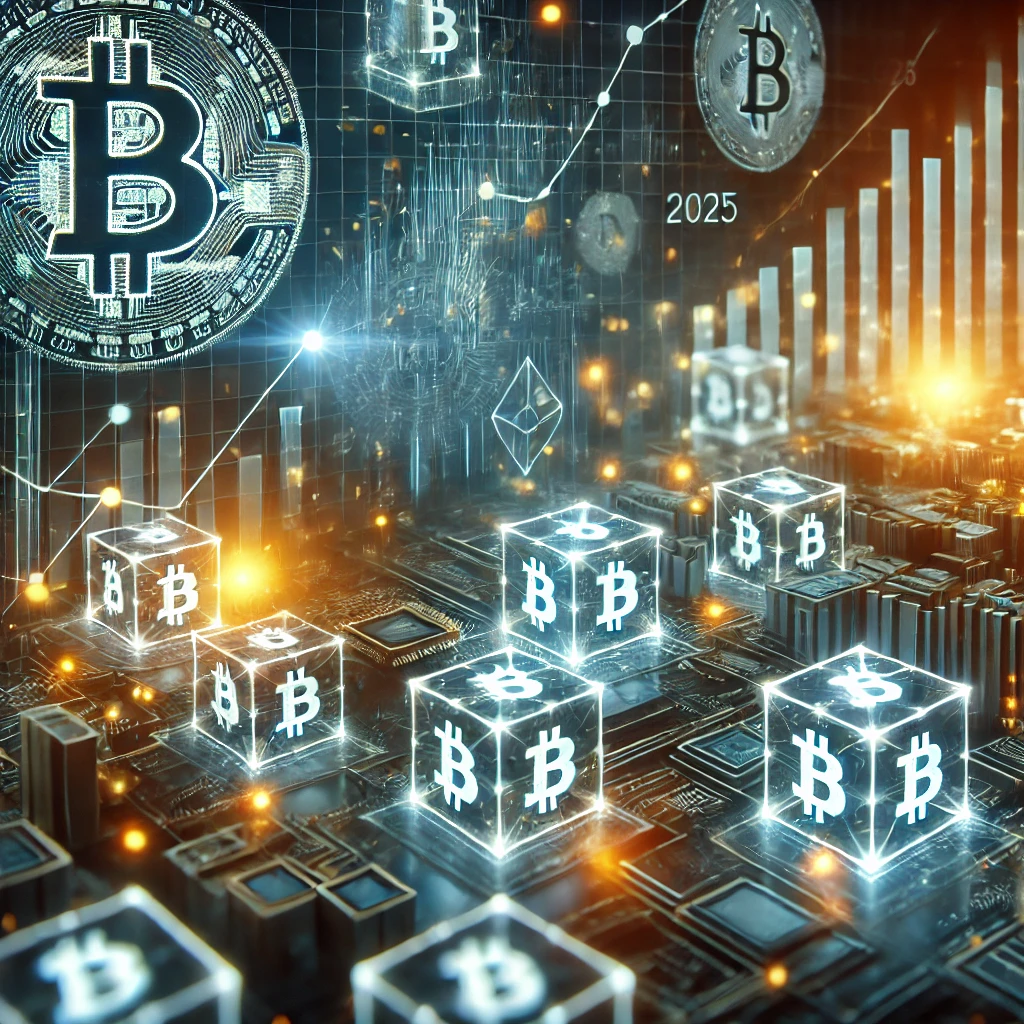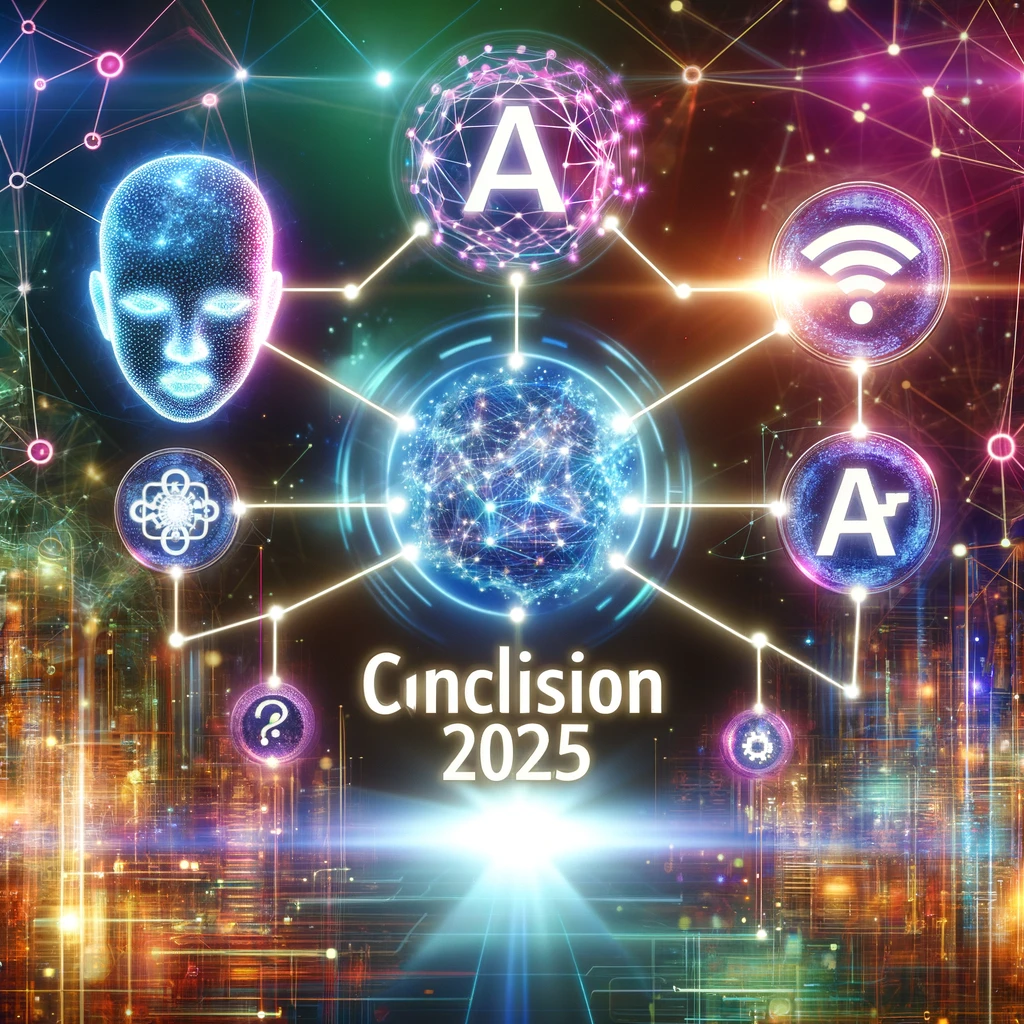Top Technology Trends of 2025
Overview of Emerging Technology Trends
The year 2025 marks a pivotal moment for technological innovation. As advancements in Artificial Intelligence (AI), Blockchain, and Augmented Reality (AR) continue to reshape industries, they also promise to enhance the way individuals interact with technology in their daily lives. These groundbreaking innovations are not just transforming existing workflows but are also creating entirely new markets.
From intelligent automation to immersive virtual experiences, the potential of these technologies is limitless. As we explore each trend, it's essential to understand their real-world applications and how they contribute to shaping the future.
 in 2025, featuring a robotic brain glowing with neural networks and surrounded by holograp.webp)
Artificial Intelligence (AI): The Tech Revolution
AI has emerged as the driving force behind many technological breakthroughs. By leveraging machine learning, neural networks, and natural language processing, AI is empowering industries to solve complex problems faster and more accurately than ever before.
In 2025, AI's capabilities extend far beyond simple automation. It now facilitates predictive analytics in healthcare, enhances customer engagement through personalized recommendations, and even aids in combating climate change by analyzing environmental data.
Practical Applications
AI is automating repetitive tasks in manufacturing, reducing errors and costs. It is revolutionizing healthcare diagnostics with AI-driven imaging and analysis. Online shopping experiences are enhanced with dynamic, personalized product suggestions. Additionally, AI is strengthening cybersecurity by identifying and mitigating potential threats in real-time.

Blockchain: The Future of Transparency
Initially known for powering cryptocurrencies, blockchain technology has evolved into a versatile tool for improving transparency and efficiency across various sectors. Its decentralized nature ensures that data is secure, immutable, and accessible to all authorized parties.
As of 2025, blockchain applications are expanding into areas such as supply chain management, where they ensure traceability and accountability. In the financial sector, blockchain eliminates intermediaries, reducing transaction costs and speeding up processes.
Key Benefits
Blockchain guarantees data integrity and prevents fraud through immutable ledgers. It streamlines international payments with reduced transaction fees. Decentralized finance (DeFi) platforms empower users by providing inclusive financial services. Blockchain also enhances voting systems with secure and transparent digital ballots.
 in 2025, featuring a person using AR glasses with holographic interfaces displaying interactive educatio.webp)
Augmented Reality (AR): Bringing Virtual to Reality
AR continues to blur the lines between the physical and digital worlds. By overlaying digital information onto real-world environments, AR provides users with immersive experiences that are both practical and engaging. From education to entertainment, its applications are vast.
In 2025, AR is revolutionizing industries like retail, where customers can visualize products in their homes before purchasing. In the field of education, AR creates interactive learning environments, making complex concepts easier to grasp. Gaming and entertainment are also set to benefit, with AR offering unparalleled levels of immersion.
Applications Across Industries
In retail, AR enables virtual try-ons for clothing, furniture, and home decor. Education benefits from interactive AR modules for subjects like science and history. Healthcare professionals use AR to assist surgeons with real-time, 3D overlays during operations. Tourism is enhanced with AR-guided tours and historical reconstructions, making trips more engaging and informative.

Conclusion
The technological landscape of 2025 is rich with opportunities and challenges. As businesses and individuals embrace AI, Blockchain, and AR, they unlock new possibilities that redefine innovation and convenience. Staying informed and adaptive is the key to leveraging these advancements effectively.
Whether you're a tech enthusiast, a business leader, or a curious reader, understanding these trends is crucial. They are not just shaping industries but are also influencing the way we live and interact with the world around us. The future is here, and it's powered by technology.







